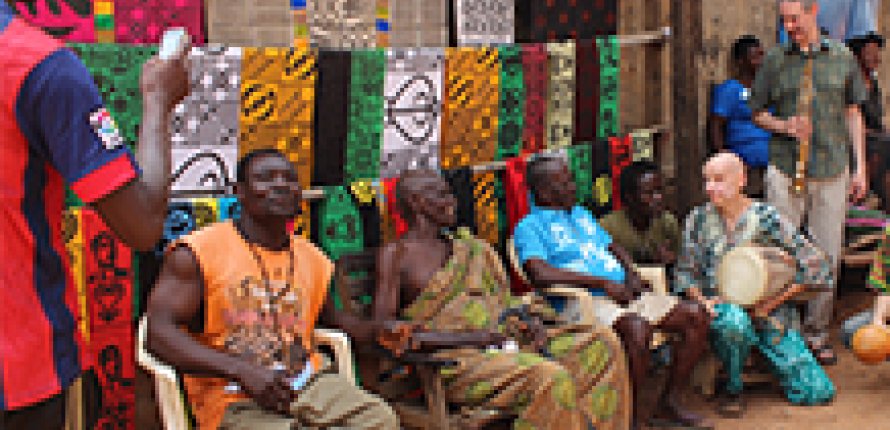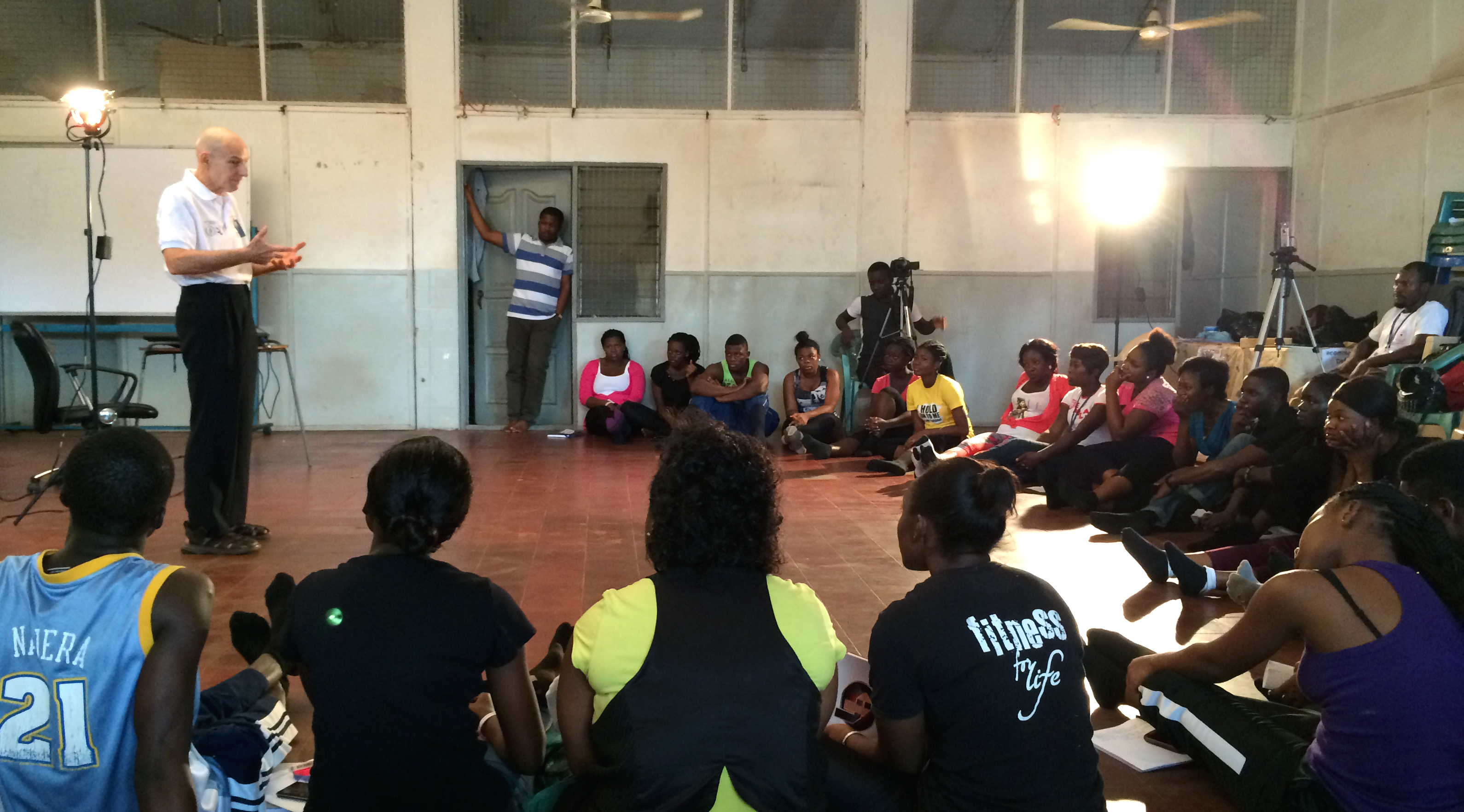Thinking Critically and Creatively: Teaching, Researching and Performing Jazz in Ghana

Royal Hartigan, Professor of World Music, University of Massachusetts, Dartmouth
2014-2015 Fulbright U.S. Scholar to Ghana
I returned to the Philippines as a Fulbright Scholar in 2006, following my Peace Corps service there in 1968-1970, teaching and performing jazz as a connection between our two countries’ cultures. My Fulbright experience in the Philippines made it clear that bringing students to live and study among global peoples is not only a positive educational force, but also a life-changing experience. Since then, the focus of my research, teaching, and performance gravitated toward Ghana, and I began taking students to Ghana for intensive field study in traditional music, dance, and culture. My earlier graduate Master’s and PhD studies at Wesleyan University (CT) 1981-86 and numerous field trips to Africa since 1991 all focused on Ghana - its culture, music, and dance. I received a Fulbright U.S. Scholar grant to Ghana from 2014-2015 to connect Ghanaians and Americans in positive ways through music. Going to Ghana as a Fulbrighter completed a circle of research, teaching, and performing that has led to new paths there and in my work as a scholar and artist.
On two of my study trips with students to Ghana in 2011 and 2012, I was in Kumasi and met faculty from the Kwame Nkrumah University of Science and Technology (KNUST). They invited me to campus and I played jazz with student groups at its Centre for Cultural and African Studies (CeCASt). Once aware of my work in world music and jazz, they invited me to join the Centre as a visiting faculty scholar/artist, and so I applied and received a Fulbright for KNUST. Through teaching world music and jazz at KNUST, I realized that real time experiential learning is crucial in music. The performing arts by their nature require first-hand experience of music performance with a teacher, especially those of non-western cultures, due to the constant interactions in a specific time and space as part of the learning process. As a result of realizing this, I intend to amplify this dimension in my UMass Dartmouth classes. One unexpected outcome of my work is my realization of degree to which an individual person can contribute to the self-awareness of people in the host country. As was the case in my Peace Corps experience, I felt I received as much from others as I gave to them. The ability to change lives while expanding one’s own personal growth during a Fulbright experience reinforces our identities as global citizens. This experiential process is something I would highly recommend for anyone interested in international service.
My classes at KNUST included Music in World Cultures, a historical and contemporary survey of diverse global music traditions, including those of India, Latin America, Africa, and American traditions, among others. Another class I taught was a performance ensemble with a historical overview of African American culture and American jazz. The ensemble members were so motivated that I joined them as a member, and founded and curated a jazz series on the KNUST campus. We had guest artists perform with us twice each month, including members of my blood drum spirit ensemble, New York guitarist and vocalist Nana Simopoulos, bassist MaryAnn McSweeney, guitarist George Spratz, poet Kwame Write, Japanese vibraphonist Hitomi To’noka, guitarist/harmonica player John Collins, and vocalist/guitarist Agya Koo Nimo, a Ghanaian legend.

My teaching world music gave my Ghanaian students the ability to think critically and creatively, and I am prioritizing this aspect of learning in my classes in the United States. At UMass Dartmouth, I have developed video materials, new performance repertoire, acquired instruments, and advocated for the inclusion of master artists from Ghana residing in the United States as part of our music faulty, to bring an expanded cultural presence to our offerings. I believe that for both my host and home institutions, the students have come away with a belief in their ability to question, analyze, and create solutions to problems on their own, freely contributing to society through the expressive arts. Through donated materials for music performance and research – books, CDs, DVDs, instruments, drum accessories, musical transcriptions, texts - and mentoring of resident faculty at KNUST, I was able to set up a network of faculty who can continue my work following my departure. I intend to maintain my connections and to return to Ghana regularly to continue research, teaching, and performance in villages and the university, facilitating connections between Ghanaians and Americans.
While in Ghana, I also did research on traditional African music and jazz with support from Fulbright Ghana Director Daniel Fennell in the American Embassy. My blood drum spirit ensemble, including, bassist Wes Brown, pianist Art Hirahara, and saxophonist David Bindman, came to Ghana for a video project that brought us across the country, living and performing with musicians and dancers, connecting traditional expression to American jazz. We did recordings among peoples in isolated forest areas, at fishing communities on the ocean, Accra’s crowded urban center, in remote villages where we witnessed traditional possession and trance practices, in bustling open markets, with Adinkra craftspeople, and in Kumasi at the Asante Cultural Centre and Akwasidae Festival at Manhyia Palace. In each village, we connected our compositions and improvisations with the local music. It was a unique experience to interact with people as one family, through the medium of African and African American music.
The result of this research and performance will be a series of videos and photograph collections that will be used by scholars, students, and the general public - anyone interested in global music, culture, African music, jazz, and Ghanaian-American connections. The film is currently entitled sumsum: the african roots of jazz, and will be presented at numerous film festivals in the U.S., Africa, Europe, and Asia. It will also be publicized via online platforms. In the spirit of the Fulbright Program, I will be making our work available to the world online, to show the openness of the Ghanaian people and the deep humanity that is part of their life. And by extension, all our lives.
